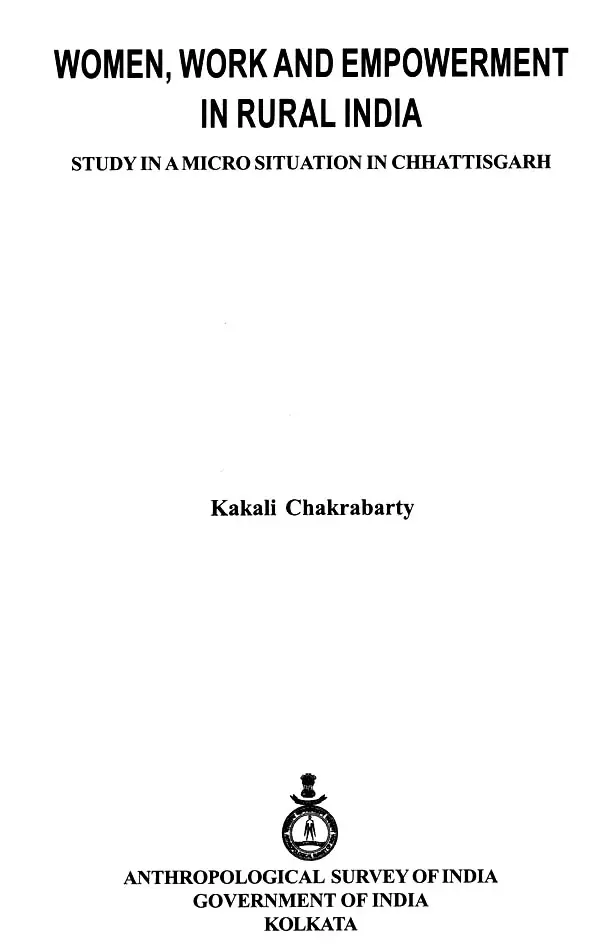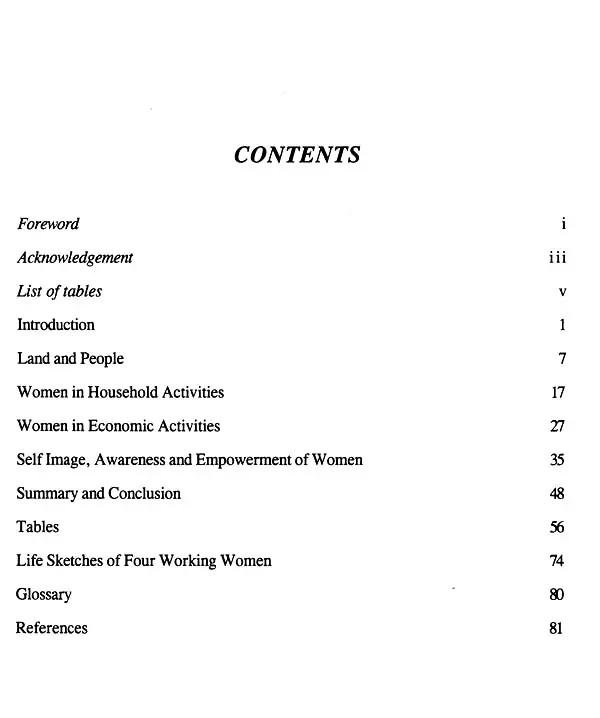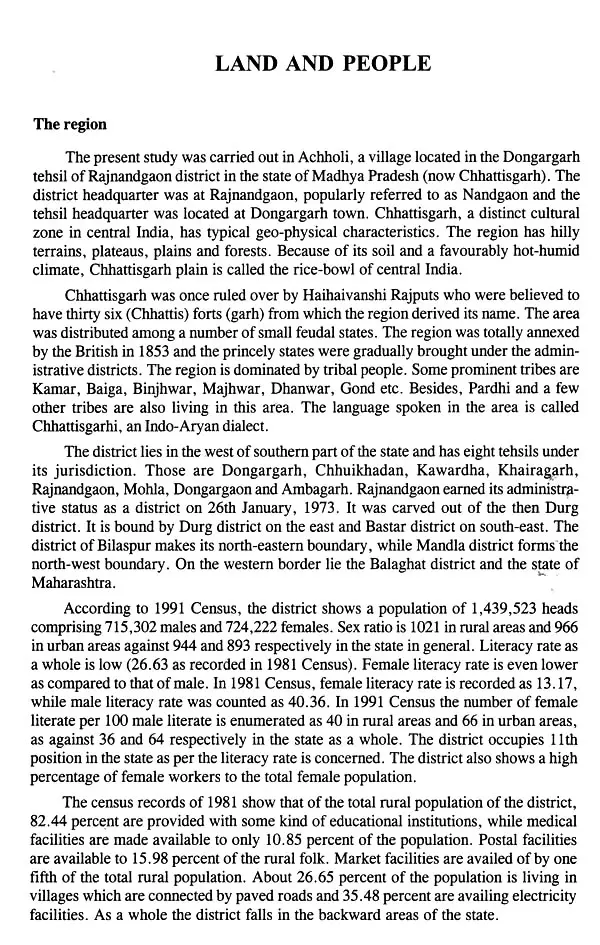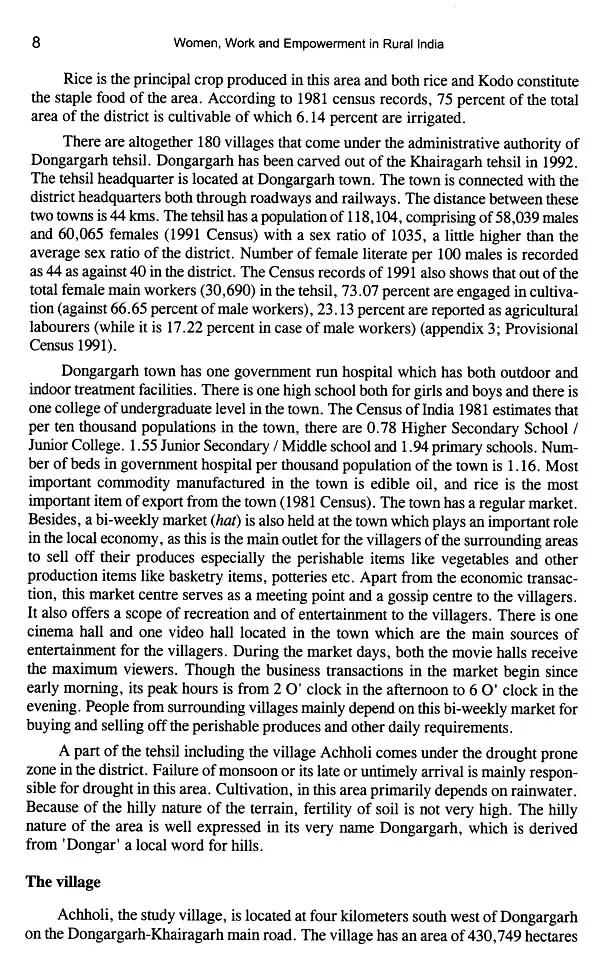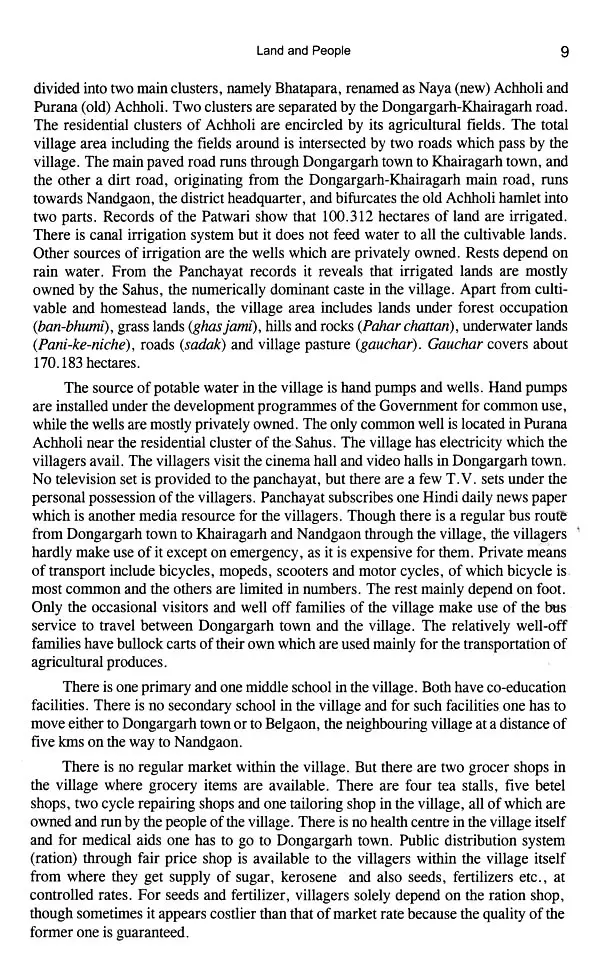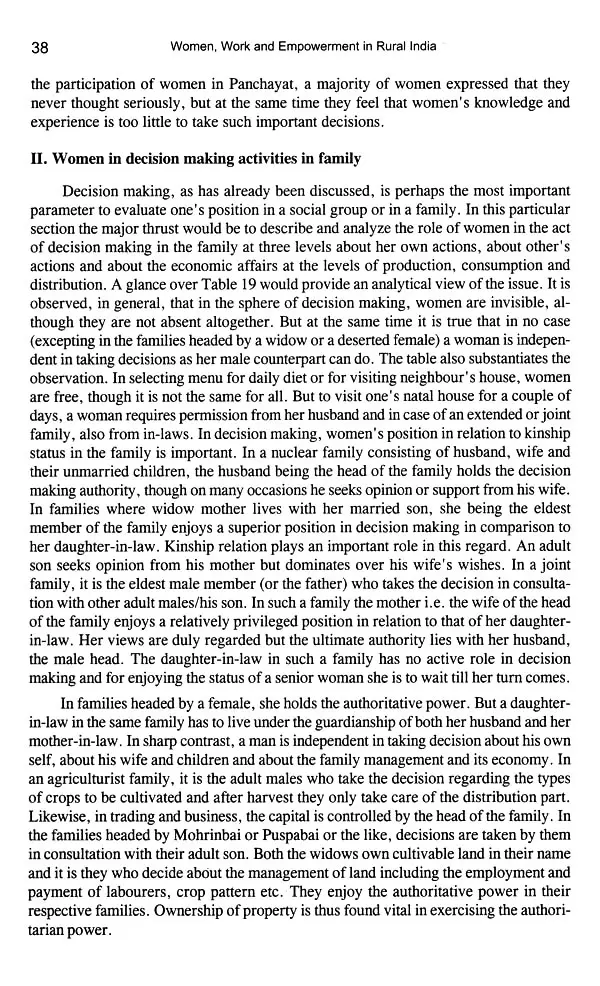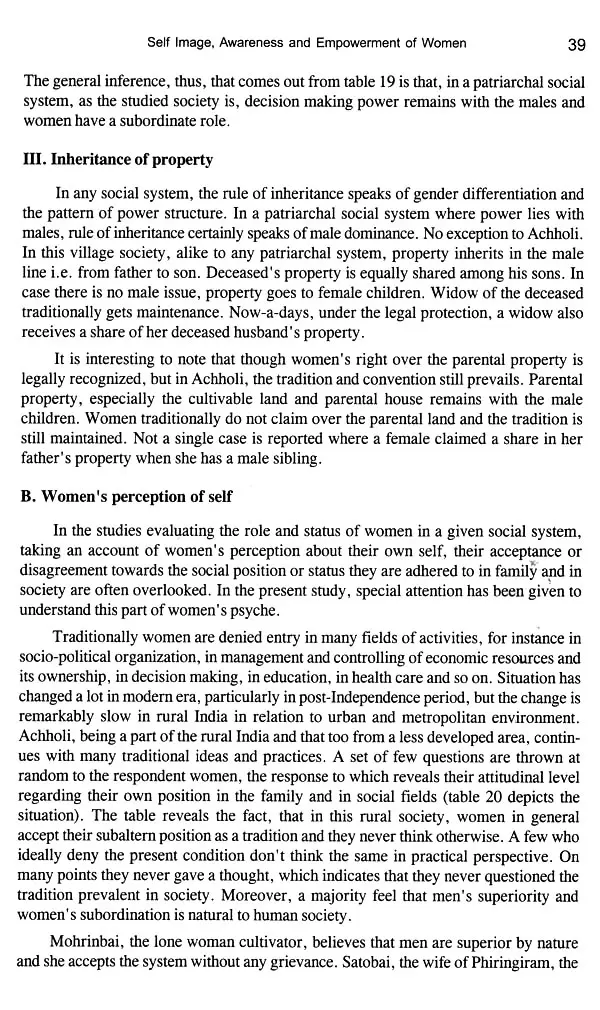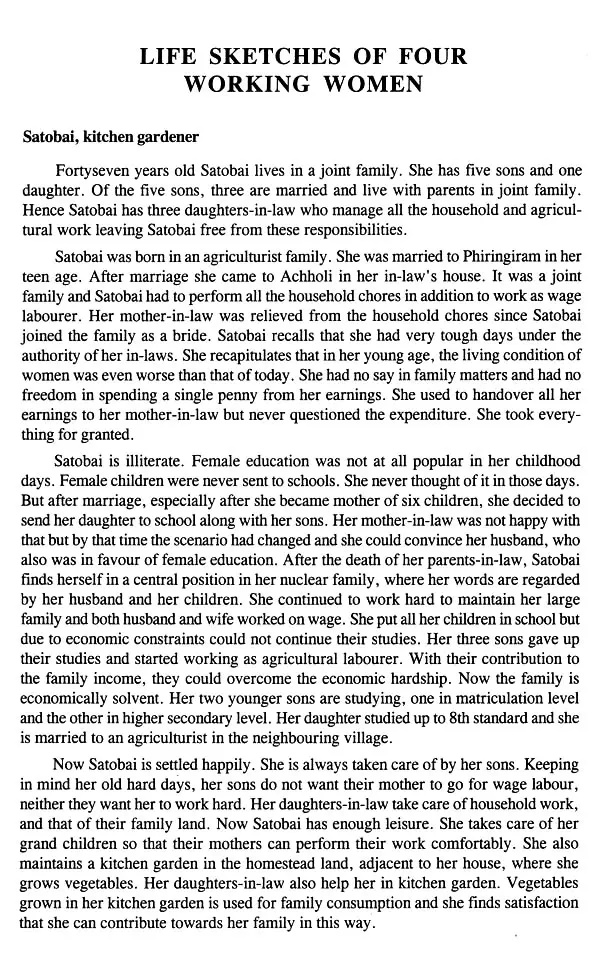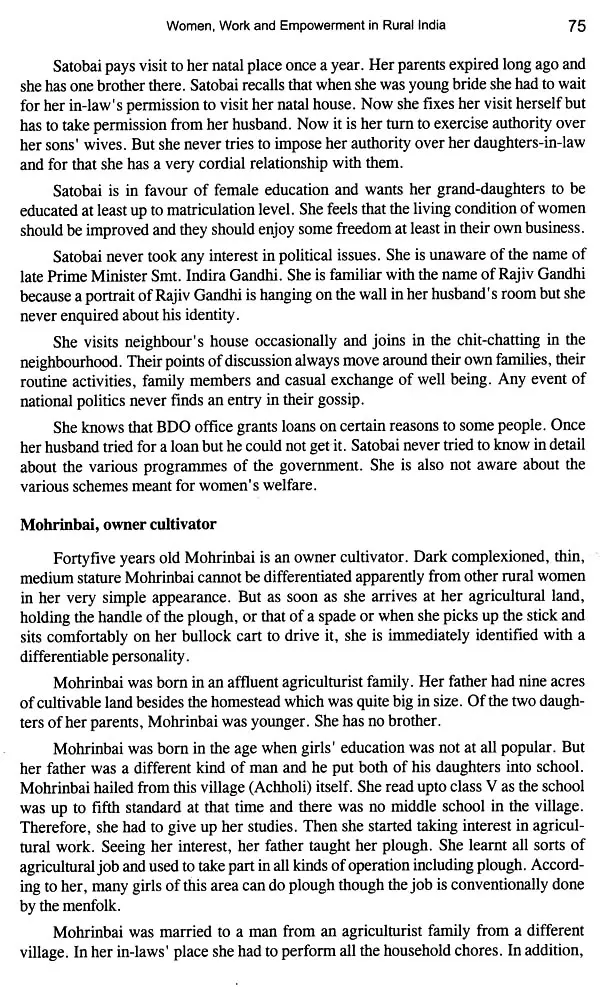About the Book This volume is an endeavour to high- light the social status, economic free- dom and obligations of the working women in micro-level in the unorga- nized sectors with special reference to Chattisgarh area. The author here de- picted the findings of a village study. The study reveals the sufferings of rural women from poverty, overwork, social deprivation, discrimination and power- lessness. The causes are rooted in social structure, socialization process, lack of awareness, illiteracy and many others factors.
The book will add towards some impor- tant dimensions in the area of woman studies. It should be useful for the social scientists in general and specialists of the woman studies in particular, besides the anthropologists and scholars en- gaged in development studies.
About the Author Dr. Kakali Chakrabarty (B.1.3.1957), presently Superintending Anthropolo- gist of Anthropological Survey of India, is specialized in Cultural Anthropol- ogy. She is exposed to varied fields in different parts of India including Anda- man Islands, Rajasthan, Madhya Pradesh, Orissa, Darjeeling, Sundarban and a few other areas of west Bengal. She has contributed on women issues, re- gionalism, folk tradition, cultural syncretism and so on. She published her re- search findings in reputed journals and books. She is a life member of Indian Anthropological Society and Indian National Confederation and Academy of Anthropologists (INCCA).
Foreword The present volume is the revised version of the thesis submitted for the Ph.D. degree by the author, Dr. Kakali Chakrabarty. The study highlights the condition of rural women, particularly those who suffer from poverty, social deprivation, discrimi- nation and powerlessness. The study also probes into the influence of the Rural Devel- opment Programmes on women for their empowerment. The methodological strength of this work is that a woman anthropologist has conducted this exclusive women-centered research and has largely succeeded in bringing out the women's perspective in her thesis. The thesis is based on empirical findings. Data have been presented in both quantitative and qualitative terms in this volume.
Introduction It is a well recognized fact that women in the civilized world are often deprived of many social rights. The level or degree of deprivation varies in terms of age, space, nature and socio-cultural characteristics of a particular population or a group depend- ing upon its morale, ethics, values and tradition.
It is still debatable as to when and how in human history women were pushed to a secondary position. Engels (1968:569) relates this development with the introduction of private property based on economy of surplus, sometimes at the stage of barbarism, the period in which knowledge of cattle breeding and land cultivation was acquired. "These new techniques brought about an increase in the things which people needed to control for production, especially land, herd, tools and even the slaves, who became important at this stage. These things, therefore, became little by little private property. The new private property would be, according to Engels and Morgan, in the hands of men, unlike the communal property of the gens, which was controlled by women, since they con-trolled the gens; this was because Engels believed that since men would be responsible for production at this stage, it was natural that they would control what was necessary for production' (Bloch, 1983: 56). According to Engels (1968: 569) "The savage' warrior and hunter had been content to occupy second place in the house and give precedence to the woman. The 'gentler' shepherd, presuming upon his wealth, pushed forward to the first place and forced woman into the second place.
Book's Contents and Sample Pages
